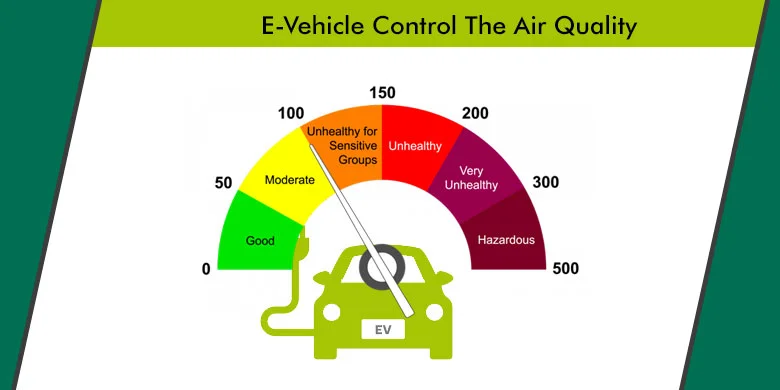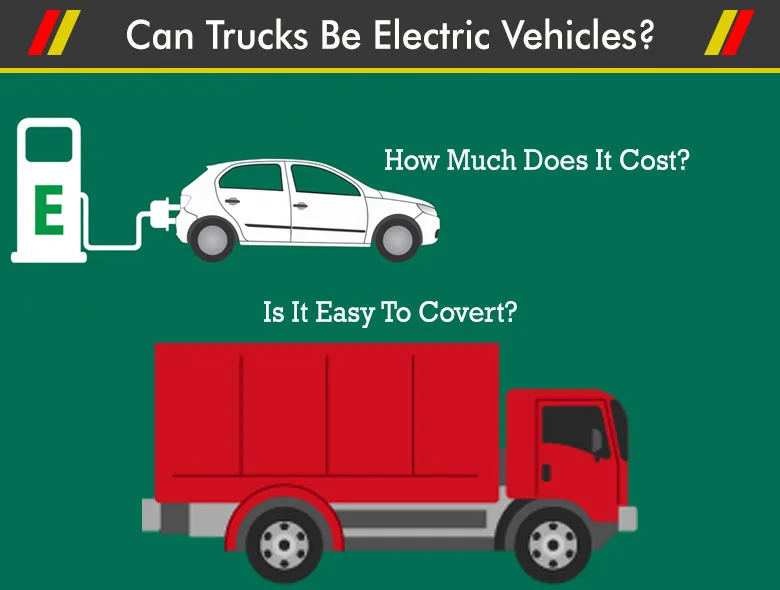The simple answer to the question ‘can truck be converted into electric vehicles?’ is YES! If you want to know how? The process includes the complete removal of the internal combustion engine from the truck. The next part involves installing an electric motor, and then you need to add a large bank of batteries.
How Much Does It Cost?
When you want to convert an old truck into an Electric Vehicles(EV), you typically have to spend about $6000 to remove the parts and install the new ones. The batteries and their installation can cost between $1000 and $3000, depending on the size.
Is It Easy To Covert?
Some options are available in the market that enables you to change the traditional vehicle into an EV. There is the option of eBeam, which can help you convert the full-sized truck into an EV.
Companies offering eBeam are just like the solid beam of a rear truck axle that is used in traditional trucks. The only difference is the place where the differential pumpkin was an electric motor is placed. These ready-to-use eBeams can be taken to a place in tandem with the existing brake designs and suspensions. As a result, you can easily convert the old truck into an EV in no time.
Advantage Of Electric Vehicles
With the air quality getting poorer with passing time and its impact on health, it is time the Indian transportation industry considers cutting down on the emissions the traditional on-road vehicles are causing.
But while you might have heard that electrification of vehicles will need the country to boost its power generation requirement. However, with fossil fuel still being the main source of power generation in India, the argument is with an increase in EV, the power sector emission will be more and will outweigh the benefits of the tailpipe emission.
However, the one factor that is rarely considered when this argument is placed is that time is of the essence. During the entire lifecycle of the EV, the emission is much less, and studies have proved that. It has been shown that EV s has a cleaner lifetime, and eventually, the energy that powers them will get cleaner. With India already using renewable energy at a decent rate, delaying in switching to EV will only impact the environment and the people negatively.
How Much Time Does It Take To Charge An E-Vehicle?
The simple answer to the question is – the time is determined by the battery of the EV and the charging point.
An EV can get charged within 30 mins or can take half a day to get fully charged. Five factors generally determine the duration taken by an EV to charge. They are:
1. The Size Of The Battey:
The bigger the battery size and capacity, the charging of it will take longer
2. Status of the Battery:
A totally empty battery will obviously take longer to get recharged compared to a half-empty battery
3. EV’s Maximum Charging Rate:
Every EV comes with its own maximum charging rate, which is the charging speed limit for the vehicle. Hence, even if you plug the EV at a higher charging rate, ChargePoint will charge at its own maximum speed.
4. The ChargePoint’s Maximum Charging Rate:
Like an EV, even the ChargePoints have their own maximum charging rate, which will determine the charging speed of the car. It is recommended not to charge your EV at a charging point that has a lower charge rate than your EV.
5. Weather:
When the temperature is lower, the charging time will increase for the EV, mainly if you are using rapid chargers.
EV Charging Services Station?
With many countries committed to cutting down the carbon emission caused by using fossil fuel vehicles, the government has pushed the government to install EV charging services in the fuel stations. Often the EV is seen as a threat to the traditional gas stations. But with the countries and the people becoming conscious about the impact fossil fuel vehicles are making on the environment and them choosing to opt for EV, fuel stations are rethinking their strategies for EV charging services.
Now, placing an EV charging service in existing fuel stations is being considered as an opportunity to get new revenues. It was reported in 2020 that Indian Oil Corporation (IOC), the top oil firm of India, is remodeling its business. In order to hedge the volatility faced in the fuel business, it is focussing on petrochemicals and turning their petrol pumps into EV charging stations.
IOC is also considering providing the battery swapping facility in their existing fuel stations. The idea is to make the fuel stations future-ready.
Even the Petroleum Ministry in 2020 had mandated the new fuel pumps to have the infrastructure in place to have at least one EV charging point in the station. So the suggestion is to implement at least one EV charging point across 70,000 fuel stations in the country to facilitate the EVs.
E-Vehicle Controls The Air Quality

A study conducted by the Northwestern University of the US showed the difference in air quality from electric vehicles versus internal combustion engines. The research revealed the air quality of EVs has lower carbon emissions and is better than the traditional combustion engine. The study further stated that the air quality and the overall impact on climate is much better when electricity is generated in the EV from its combustion sources.
Is EV Able To Control Air Quality – How?
An EV does not have any tailpipe, and a full EV does not emit any carbon dioxide when driving. This reduces air pollution. Furthermore, when conventional internal combustion is used to slow down a car, it uses disc brakes. This emits particle pollution, whereas the ‘regenerative braking’ system used by EV does not do that. Instead, an EV restores the energy used for braking back to the car’s battery, which is reused to run the vehicle.
The overall fact remains that EV reduces air pollution is a better and improved option for a sustainable environment. It is hence no wonder that the government across the world is pushing for EVs. The energy used in producing an EV is indeed higher than a traditional vehicle, but in the car’s lifetime, the energy it uses and its reduced emission is a better option.
Delhi To Get Its First EV Charging Soon
Way back in July 2020, the first EV public charging station was inaugurated by Deputy Chief Minister Manish Sisodia in East Delhi. On November 4, 2021, the Delhi government is pushing for 500 charging points across Delhi by June 2022 to have green cabs plying the country’s capital.
The 500 charging points will utilize the Rs 100 crore State EV Fund from the Environment Compensation Charge (ECC) corpus.
Part of the plan includes these charging stations’ locations being accessible via apps for the users.
The government is now asking the cab and delivery services to switch their fleet to EV at least by 25 percent and hopes that by 2024, at least 25 percent of the new vehicles registered will be EV.
On November 25, 2021, it was reported Noida would have its first functioning EV charging station by two weeks. Also, there is a plan to have at least 100 public charging stations for the city soon.
The government of Delhi is also pushing for EV charging points to be installed in shopping centers, hospitals, apartments, and even other public places. For installing such a private EV charging point, the government subsidizes the rate and charges only Rs2,500. Delhi is looking towards cutting down the use of fossil fuel and moving towards a greener city.
What is an E-Vehicle?
An EV or E-Vehicle is an electric vehicle that needs an electric motor to operate. It does not mix fuel with gases and burn them in the internal combustion engine to generate power. EV, apart from being environment friendly, also has low running costs and is easy to maintain.
While some earlier EVs used nickel-metal hydride or lead-acid batteries, now the standard and modern EVs use lithium-ion batteries, which have improved longevity and tremendous energy retaining capacity. This gives them a better mileage and a self-discharge at only 5 percent per month.
In a scenario where the world is fighting to address and reduce the carbon dioxide emission, use of fossil fuel, and greenhouse effect to have a cleaner and sustainable environment, EV is seen as the possible replacement for fossil fuel consuming traditional vehicles.
Like other countries, even India has incentivized the purchase of electric vehicles. Even the incentive is offered to manufacturers of the EVs in India. A scheme of 95 crores was approved by the Ministry of New and Renewable Energy (MNRE) in 2010. The scheme became effective in 2010 in India.
However, more work and research are being done to increase the efficiency of EVs around the world. It is also essential to note charging an EV is relatively cheap than filling up your vehicle’s tank with petrol or diesel.
Editorial Staff at Bharat Software Solutions is a team of transport management system development.

